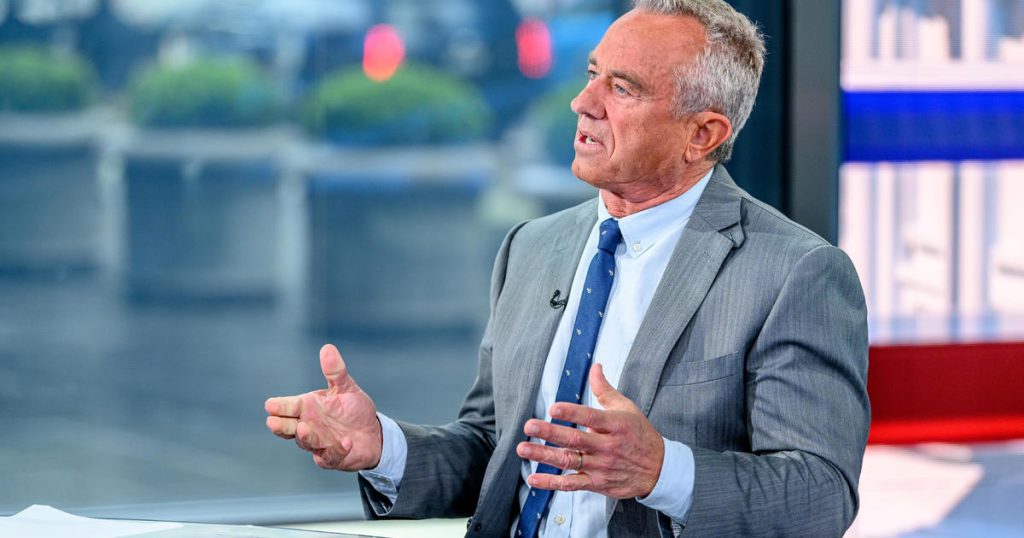The impact of third-party candidates on the 2024 election is a topic of discussion, particularly in relation to independent candidate Robert F. Kennedy Jr. A fundraising email from Kennedy’s campaign recently referred to those charged in the Jan. 6 Capitol riot as “activists” who have been “stripped of their Constitutional liberties.” The email also called for the release of WikiLeaks founder Julian Assange, who is facing extradition to the U.S. Kennedy’s campaign later disowned this language, stating that it does not reflect Kennedy’s views and was inserted by a new marketing contractor. The campaign has since terminated its contract with this vendor. This language in the email, referring to the rioters as “activists,” aligns with former President Donald Trump’s messaging, who has defended the rioters and vowed to free them if reelected.
The comparison made in Kennedy’s fundraising email between the jailed Capitol rioters and Assange and Edward Snowden, a former NSA contractor living in exile in Russia, has sparked controversy. The email highlighted a British court’s decision to delay Assange’s extradition until the U.S. government gives assurances, including that he will not face the death penalty. It also mentioned concerns about governmental actions towards citizens, specifically focusing on those involved in the Capitol riot. Kennedy’s campaign clarified that the statement in the email was an error and does not reflect Kennedy’s views. Despite this disavowal, the incident raises questions about the intersection of third-party candidacies and controversial issues that may arise during election campaigns.
The use of language and messaging by third-party candidates in campaign communications can have significant implications for their candidacy and the overall political landscape. In this case, the language in Kennedy’s fundraising email highlighting the Capitol rioters as “activists” aligns with former President Trump’s defense of these individuals. Kennedy’s campaign disowned this language and terminated its contract with the marketing vendor responsible for the email. The incident underscores the challenges faced by third-party candidates in navigating political messaging and public perception, especially in relation to controversial issues such as the Capitol riot.
The 2024 election is shaping up to be a significant moment in American politics, with a range of candidates vying for the presidency. Third-party candidates, such as Robert F. Kennedy Jr., bring unique perspectives and ideas to the political landscape. However, they also face challenges in gaining visibility and support, particularly in a political environment that is often dominated by the two major parties. The controversy surrounding Kennedy’s fundraising email highlights the complexities of running as a third-party candidate and the need to carefully consider messaging and communication strategies to appeal to a diverse electorate.
The role of independent and third-party candidates in the 2024 election remains uncertain, as their impact on the political landscape is influenced by a variety of factors. Kennedy’s campaign disavowed language used in a fundraising email that compared jailed Capitol rioters to prominent figures such as Assange and Snowden. This incident raises questions about the potential impact of third-party candidates on the election, as they navigate complex issues and seek to differentiate themselves from the major party candidates. The campaign’s response to the controversy emphasizes the importance of careful messaging and communication strategies in garnering support from a diverse electorate.
In conclusion, the impact of third-party candidates on the 2024 election is a topic of interest and debate, with candidates like Robert F. Kennedy Jr. facing challenges in navigating political messaging and public perception. The controversy surrounding Kennedy’s fundraising email and its disavowal by his campaign highlights the complexities of running as a third-party candidate in a political landscape dominated by the two major parties. As the 2024 election approaches, the role of third-party candidates in shaping the political narrative and capturing the attention of voters remains uncertain. Understanding the challenges and opportunities faced by these candidates is crucial in assessing their potential impact on the election and the broader political landscape.


